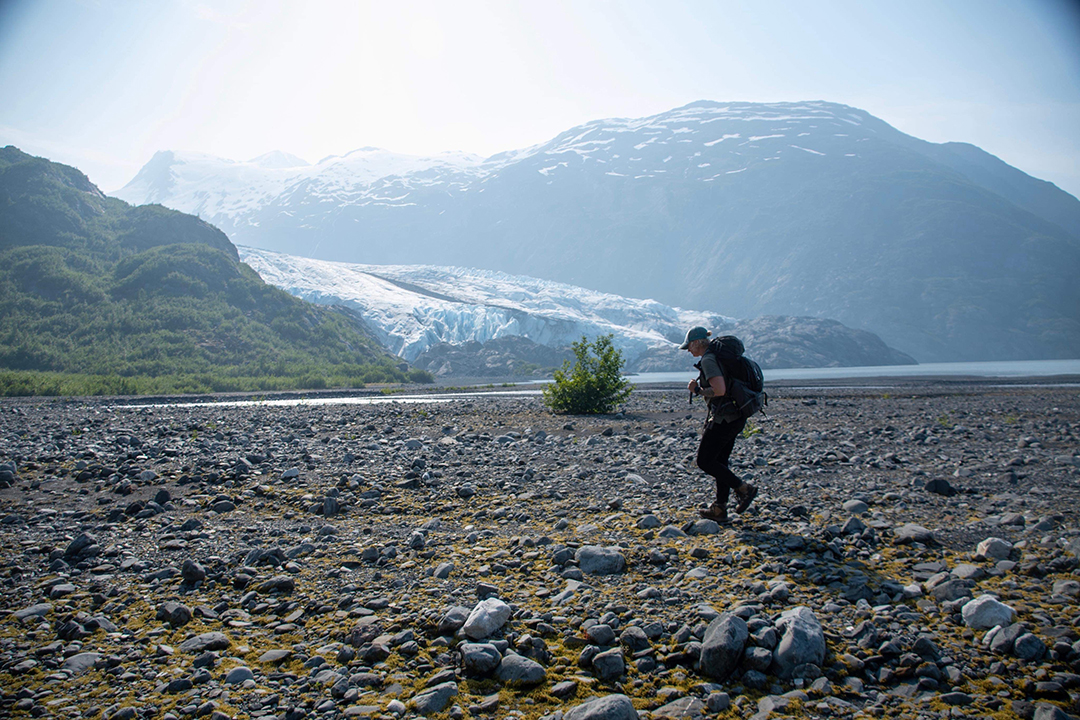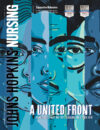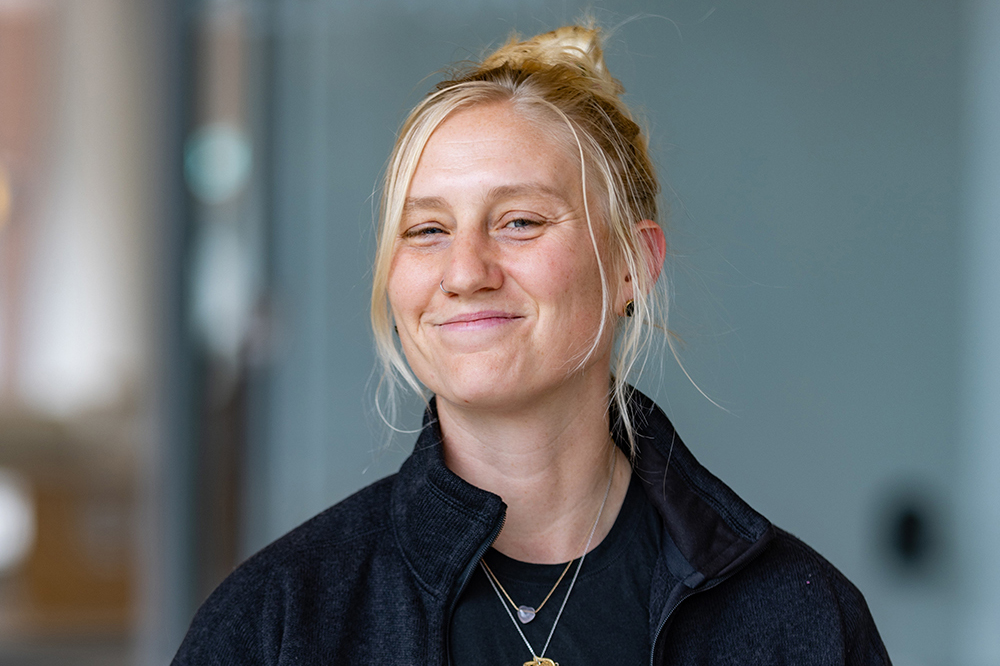Leadership is as big a part of Ayla Chase’s nature as the Great Outdoors themselves.
A leader doesn’t have to be tough, showy, or cool, though MSN (Entry into Nursing) student Ayla Chase— a former U.S. Army captain and punk-loving skateboarder and forever outdoor-sports enthusiast—can be each. She also describes herself as an introverted student leader, which she doesn’t see as a contradiction or an obstacle.
Chase explains that leadership can simply look like “being the best version of yourself” every day toward colleagues and instructors alike, “and that radiates. Energy is contagious.” Chase considers speaking from experience, embracing physical and emotional challenges, and above all keeping your head as keys to leadership whether as part of Johns Hopkins Nursing or the first group of women ever to train alongside men at U.S. Army Infantry School. “Fort Benning in Georgia,” Chase remembers of the 2017 groundbreaking (and mud splattering) coed training experience. “The program was designed to suck.”
It did not disappoint.
Nor did Chase. “It’s meant to build your intestinal fortitude and grit,” she says of an ordeal that left her oddly impressed by the ingenuity of the program’s architects. “We knew it was going to suck, so we have an expression: ‘Embrace the suck.’ ” Chase tried to squeeze the life out of it. “It was awesome.”

Upon hitting a career wall in the military (and reading the writing on it), “I compared physician assistants to nurses to going the medical doctor route: Which had the least barriers to entry, had the greatest scope of practice, and had the most direct patient-contact care?” Introversion aside, “It was paramount that I get to be with people.”
JHSON’s reputation and that of nursing itself helped seal the deal.
“It’s imprinted in us: Nursing is the most trusted profession, and it is for a reason. You say you’re a nurse and wherever you are people ask you questions. You’re just this ambassador for health care.”
“It was paramount that I get to be with people.”
A military brat, Chase was born in Italy to an Air Force dad whose career journey took the family to Alaska, South Carolina, Germany, and finally Florida, where he retired as a master sergeant. Such a nomadic life is not for everyone. Ayla Chase could never wait to get to the next stop. New school? No problem: Sports were always a way around any awkwardness, and that has frankly never changed.
“From very early in my childhood it was a sense of adventure,” she explains. “When we found out where we going next, we started researching. ‘What can we get into there? Board sports? Outdoors?’ I did the same thing when I came here for Johns Hopkins.” Baltimore meant her first choice of nursing schools, naturally. Conveniently, it also offers access to ocean surfing, the Appalachian Trail, and various climbing and mountain biking environments, all within a couple of hours. For quieter moments, Chase has her guitars. Music is the one place she’ll admit to having mellowed just a bit from her teen days of shredding on the skateboard and the ax.
Still, if she has her way, Chase—trained as a volunteer firefighter and EMT as well as a soldier—quiet moments will always be the exception.
So, after she earns the MSN in Spring ’24? “I’m going to immediately apply for the DNP for family nurse practitioner because I do want to work in more rural settings. There’s just a far greater scope of practice you can do with that. I volunteer a lot, so in that role [DNP-FNP] you can be part of mission planning for search-and-rescue organizations—Red Cross, Rubicon—there’s just a ton of them that really need these roles.”
And Chase sees only growth for the field. “Regardless of what your stance is on global warming, we have seen and will continue to see an increase in the severity, duration, and frequency of environmental disasters, domestically and internationally. And a huge portion of wilderness nursing is being able to ‘deploy’ to these arenas and provide care with small, very driven teams that can think critically.”
Meanwhile, Chase and a few others in her MSN cohort are founders of Johns Hopkins’ School first adventure medicine team. “Think of it as an umbrella term, because there’s a lot that falls under it. There’s disaster relief and humanitarian aid. There’s expedition medical planning management, like being up there on Mount Everest, providing medical care in these austere environments—incredibly unique and resource-minimized situations. That’s wilderness medicine. … It’s acute care in settings that are unpredictable.”
And embraceable, if you’re Ayla Chase.
Read more profiles from the “We Are All East Baltimore” series.

